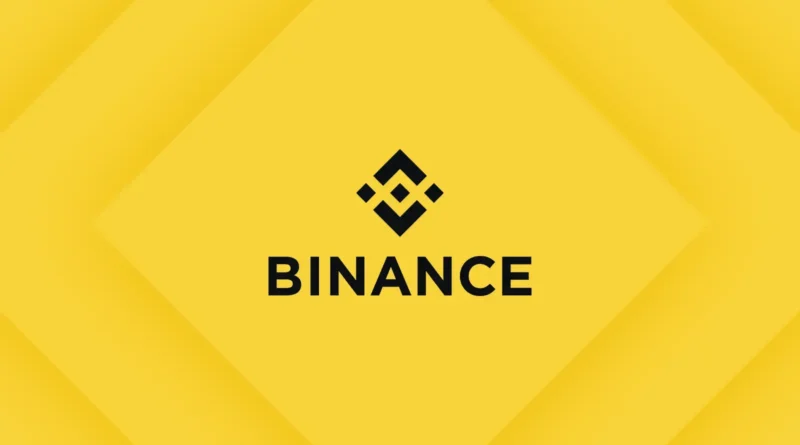Binance’s Legal Settlement: A Turning Point for Crypto Regulation?
Contents
- 1 Understanding the significance of the legal settlement
- 2 Crypto regulation and its challenges
- 3 Overview of the Binance case
- 4 Implications of the legal settlement on Binance and the crypto industry
- 5 Analysis of the regulatory landscape post-settlement
- 6 The impact on investor confidence and market stability
- 7 What the legal settlement means for other cryptocurrency exchanges
- 8 The future of crypto regulation
- 9 The road ahead for Binance and the crypto industry
- 10 Author
In the ever-evolving world of cryptocurrency, Binance, one of the largest cryptocurrency exchanges, has recently reached a legal settlement. This development has sparked speculation about whether it could signal a significant turning point in the regulation of digital currencies. With cryptocurrency’s growing popularity, governments and financial institutions worldwide have been grappling with how to effectively regulate this decentralized form of currency.
Binance’s legal settlement, therefore, has captured attention as it may set a precedent for how regulators approach the industry moving forward. Some experts argue that this settlement could lead to clearer guidelines and increased accountability for the cryptocurrency market. Others, however, caution against premature conclusions, highlighting the complexities involved in regulating such a nascent and rapidly developing field. As the crypto community eagerly awaits further details of the settlement and its implications, one thing remains clear: Binance’s legal resolution has the potential to shape the future of cryptocurrency regulation and impact the entire industry.
Understanding the significance of the legal settlement
The legal settlement reached by Binance holds significant importance for the cryptocurrency industry. As one of the largest and most influential cryptocurrency exchanges globally, Binance’s actions and regulatory outcomes have far-reaching implications. The settlement could serve as a precedent for other exchanges and regulators, shaping the future of crypto regulation.
One key aspect of the legal settlement’s significance lies in the potential for establishing clearer guidelines for the cryptocurrency market. The lack of clear regulations has been a persistent challenge for cryptocurrencies, resulting in uncertainty and limited mainstream adoption. If the settlement leads to more transparent and comprehensive regulations, it could provide a much-needed framework for the industry’s growth and stability.
Furthermore, the legal resolution may also enhance accountability within the cryptocurrency sector. As a decentralized form of currency, cryptocurrencies have often been associated with illicit activities and lack of oversight. The settlement could pave the way for increased scrutiny and measures to combat money laundering, fraud, and other illicit practices. This, in turn, could foster trust and confidence among investors and stakeholders, leading to a more secure and reliable market.

Crypto regulation and its challenges
Regulating cryptocurrencies poses unique challenges due to their decentralized nature and global reach. Unlike traditional financial systems, cryptocurrencies operate without a central authority, making it difficult to establish a unified regulatory framework. Additionally, the cross-border nature of cryptocurrencies further complicates regulatory efforts, as different countries have varying approaches and regulations.
One of the primary challenges in crypto regulation is striking a balance between fostering innovation and protecting investors. The rapid growth and evolving nature of the cryptocurrency industry necessitate regulatory measures that support innovation and technological advancements while safeguarding against potential risks. Achieving this delicate balance requires regulators to stay informed, adaptable, and proactive in addressing emerging concerns and developments.
Another challenge lies in addressing the potential for illicit activities associated with cryptocurrencies. The pseudonymous nature of cryptocurrency transactions has raised concerns about money laundering, terrorism financing, and other illegal activities. Regulators must work collaboratively to implement effective anti-money laundering (AML) and know-your-customer (KYC) measures to mitigate these risks without stifling innovation.
Overview of the Binance case
The legal settlement involving Binance has garnered significant attention within the cryptocurrency community. Binance, founded in 2017, quickly rose to become one of the largest cryptocurrency exchanges globally, offering a wide range of trading pairs and services. However, its rapid growth also attracted regulatory scrutiny, leading to the recent legal settlement.
The specifics of the case and the settlement agreement are yet to be fully disclosed, leaving many details open to speculation. However, it is widely believed that the settlement involves regulatory compliance and potential violations related to Binance’s operations. The outcome of this settlement will likely impact Binance’s future operations and set a precedent for how other exchanges are regulated.
Implications of the legal settlement on Binance and the crypto industry
The legal settlement reached by Binance will undoubtedly have significant implications for both the exchange and the broader cryptocurrency industry. For Binance, the settlement could result in increased regulatory oversight and potential changes to its business practices. This could include stricter compliance measures, enhanced transparency, and closer cooperation with regulators.
The impact on the crypto industry extends beyond Binance, as the settlement may set a precedent for how other exchanges are regulated. Regulators often look to prominent cases to establish guidelines and standards for the industry. If the settlement leads to a more structured and regulated approach, other exchanges may need to adapt their operations to align with the new regulatory landscape.
Furthermore, the settlement’s implications may extend to investor confidence and market stability. Clearer regulations and increased accountability could instill trust among investors, attracting more traditional institutional players into the crypto market. This influx of institutional capital could contribute to market stability and potentially reduce the volatility often associated with cryptocurrencies.
Analysis of the regulatory landscape post-settlement
The legal settlement reached by Binance has the potential to reshape the regulatory landscape for cryptocurrencies. Regulators worldwide have been grappling with how to effectively oversee this rapidly evolving industry, and Binance’s settlement may provide valuable insights for future regulatory initiatives.
One possible outcome of the settlement is the establishment of clearer guidelines for cryptocurrency exchanges. Regulators may use the Binance case as a reference point to craft comprehensive regulations that address potential risks and protect investors. These guidelines could cover areas such as AML/KYC compliance, customer protection, asset security, and operational transparency.
Another aspect that regulators may focus on post-settlement is fostering collaboration and information sharing between exchanges and regulatory bodies. Effective regulation requires continuous communication and cooperation between regulators and industry participants. The settlement may encourage exchanges to be more proactive in reporting suspicious activities and working closely with regulators to address potential risks.
The impact on investor confidence and market stability
Investor confidence plays a crucial role in the success and stability of any financial market, including the cryptocurrency market. The legal settlement reached by Binance has the potential to enhance investor confidence by establishing clearer regulations and increasing accountability within the industry.
One way the settlement could boost investor confidence is through improved asset security measures. Cryptocurrency exchanges often face security challenges, with high-profile hacks and thefts occurring in the past. Stricter regulations post-settlement could require exchanges to implement robust security protocols, such as multi-factor authentication, cold storage solutions, and regular security audits. These measures would provide reassurance to investors, mitigating concerns about the vulnerability of their assets.
Additionally, the settlement may contribute to market stability by reducing the perception of cryptocurrencies as a haven for illicit activities. The increased regulatory oversight and compliance measures resulting from the settlement could help weed out bad actors and improve the overall integrity of the market. This, in turn, may attract more institutional investors who are often cautious about entering unregulated or loosely regulated markets.

What the legal settlement means for other cryptocurrency exchanges
The legal settlement reached by Binance could have implications for other cryptocurrency exchanges operating in the same regulatory environment. Regulators often look to high-profile cases to establish guidelines and standards for the industry, and the Binance settlement may serve as a blueprint for future regulatory actions.
Other exchanges may need to reassess their compliance measures and operational practices in light of the settlement. It is likely that regulators will scrutinize exchanges more closely, focusing on areas such as AML/KYC compliance, customer protection, and operational transparency. Exchanges that fail to meet these regulatory expectations may face increased scrutiny, fines, or even potential shutdowns.
However, the settlement also presents an opportunity for exchanges to proactively align themselves with danatoto. By implementing robust compliance measures and fostering transparency, exchanges can position themselves as trusted industry participants, attracting investors and complying with regulatory standards.
The future of crypto regulation
The legal settlement reached by Binance is just one step in the ongoing journey of crypto regulation. The cryptocurrency industry is still in its early stages, and regulators worldwide are grappling with how to strike the right balance between innovation and investor protection.
The future of crypto regulation will likely involve ongoing dialogue and collaboration between regulators, industry participants, and other stakeholders. It is essential for regulators to stay informed about technological advancements, market trends, and emerging risks to craft effective regulations. Flexibility and adaptability will be key, as the cryptocurrency landscape continues to evolve, presenting new challenges and opportunities.
Additionally, international cooperation and standardization efforts will play a crucial role in shaping the future of crypto regulation. Given the global reach of cryptocurrencies, regulatory approaches should be harmonized to avoid fragmentation and regulatory arbitrage. Forums and organizations such as the Financial Action Task Force (FATF) and the International Organization of Securities Commissions (IOSCO) can facilitate cooperation and the development of international standards.
The road ahead for Binance and the crypto industry
In conclusion, Binance’s legal settlement holds significant implications for both the exchange and the broader cryptocurrency industry. While the specifics of the settlement are yet to be fully disclosed, it has the potential to shape the future of crypto regulation by establishing clearer guidelines and increasing accountability.
The settlement may lead to enhanced investor confidence, improved market stability, and increased institutional participation in the cryptocurrency market. Moreover, other exchanges will likely face closer regulatory scrutiny as regulators use the Binance case as a reference point.
As the crypto industry continues to evolve, ongoing dialogue and collaboration between regulators and industry participants will be crucial. The future of crypto regulation will require adaptability, international cooperation, and a delicate balance between fostering innovation and safeguarding investors.
Overall, Binance’s legal settlement represents a turning point in the regulation of cryptocurrencies, setting the stage for a more structured and accountable industry moving forward. The road ahead will be paved with challenges, but also opportunities for growth and mainstream adoption of cryptocurrencies.
Also read: Swedish Meatballs Mastery: Savory, Succulent, and Simply Irresistible Homemade Delights

